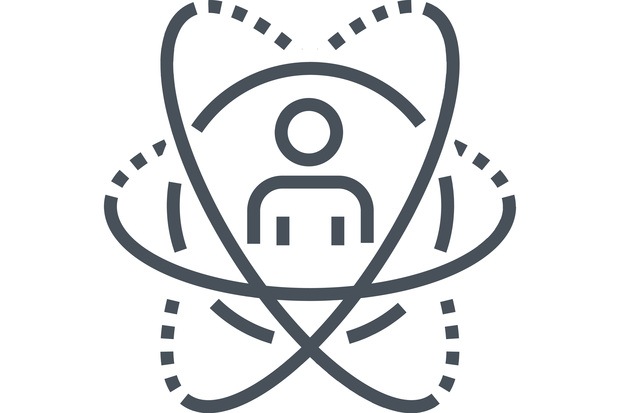Let’s make it personal and apply collaborative consumption to individual health.
Individualized care is what we mean when we speak of “patient” or “health.” The world is afraid of individualism, and this is magnified in healthcare. Prevention, telemedicine and wellness each address healthcare at an arm’s length.
Person-centric and patient-centric care touches, you the individual. The symmetric democratization balances the knowledge-driven power of medicine as power shifts from the doctor to the patient. Personal health is about more than analytical responses, and interoperability. Person-centric care stems from destructing the vision of the masses and creating concrete cures that change individual lives today, not tomorrow. Erecting power from family, friends, and communities must solve problems.
Communities are support groups for comforting the sick. What if tomorrow they were enablers for the cures? How society views personal health, must change. There is no such thing as a common disease. Rethinking N of 1 and M2M (machine-to-machine), might offer insight into new analytical topologies that will be the new platform for tomorrow’s cures. No more talk of making an impact, make an impact today – the cure we solve together could be yours.
Integrity sans central authority
Data loss, data fraud, and data alterations are no longer possible with blockchain identity schemes. These new identity schemes are changing the roles of insurance companies and insurance providers with the introduction of new permission frameworks. These new data storages frameworks could accelerate population health data. For example, when a person dies, this could be a trigger a blockchain event to authorize the release of their medical records. The blockchain permits the release of the medical records for the benefit of medical research and later adds the records to the disease repository of a global database of sequenced genomes. Over time society gets smarter, with minimal personal risk.
Collaborative consumption for patients like us
Collaborative consumption is reshaping the economy and consumers are responding. Owning or buying a product is being replaced by leasing or sharing in the shared economy. Companies across the globe are buying into the models with new distribution channels bucking prevailing trends and consumers are taking action. Product services systems (paying for usage and access over ownership), redistribution markets (bartering, trading and sharing or swapping goods), and collaborative lifestyles (sharing intangibles) have triggered a new business philosophy; the introduction of the shared economy.
The shared economy is all the buzz. Automotive and Uber is not the only industry taking an interest. Across the world, manufacturers realize the value in the sharing economy. For example, Maschinenring is exploring leasing machinery for agriculture and forestry. LiquidSpace and Ikea are playing in the used furniture market, and FedEx TechConnect is beginning to repair consumer electronics taking a lesson from Best Buy’s Geek Squad. By selling the service, not the product and supporting customers in their attempts to resell, businesses can benefit from unused resources and capacities.
Let’s make it personal and apply collaborative consumption to individual health. Pooling resources with others that have the same variations on one or more of the 46 human chromosomes would be “healthy collaborative consumption.” Using blockchain to authorize the sharing knowledge and economic benefits of scale would decrease healthcare costs and start solving particular individual problems. Isn’t healthcare collaborative consumption the genuine definition of population health? Make the patient group impacted or affected by the outcome by being part of the process.
Even better, empower the patients to lead the charge to find cures, who else would be more motivated to discover success, no matter how aloof. Welcome to Uber Health 2.0, where based on DNA sequencing you can locate individuals with similar health conditions, leveraging big data analytics for precision medicine leading to better individual health outcomes. Blockchain technology could provide conditional access to medical records and health related information. Context-driven experience expanded to contextually driven data access. Platforms need to improve, riding on the wave of patient behavior change before we’ll experience this new reality.
The patient will see you now
Doctor house calls were 40 percent of all doctor-patient meetings in 1960, by 1980 that number was down to 0.6 percent. When did society determine that the frail and sick need to travel for care? At what point did the patient’s voice get softer. It’s true the trend to quantify oneself could be mainstream by 2020. The rapid adoption of wearables, nanodevices, and ingestibles, suggests that there will be a tipping point at which point physician trust will be achieved. What platforms drive quantification? How will experience unfold when leaned against social context? What engine will drive clinical decisions?
Plecosystems, are a multi-platform ecosystem, coined by John Mattison MD, Assistant Medical Director and Chief Medical Information Officer at Kaiser Permanente. Plecosystems, are made up of six platform types:
1. Services platforms e.g. cloud, DNA sequencing
2. Data platforms e.g. microbiome, wearables
3. API platforms e.g. Apple, EHR vendors
4. Experience platforms e.g. social-connected, empathic designs
5. Financial platforms e.g. fit-for-purpose, state of life-cycle
6. Socio-cultural e.g. values, ethical platforms
Blockchain can unlock barriers to identifying schemes for personal health and chronic illness management, driven by the conditional access provided by the patient. The symmetric democratization of healthcare will give patients back control. Health is personal and must be individualized. Forming communities to leverage the demand-side economies of scale increases the value as more patients are impacted and become absorbed into a community to find a cure. A true person-centric network effect.
